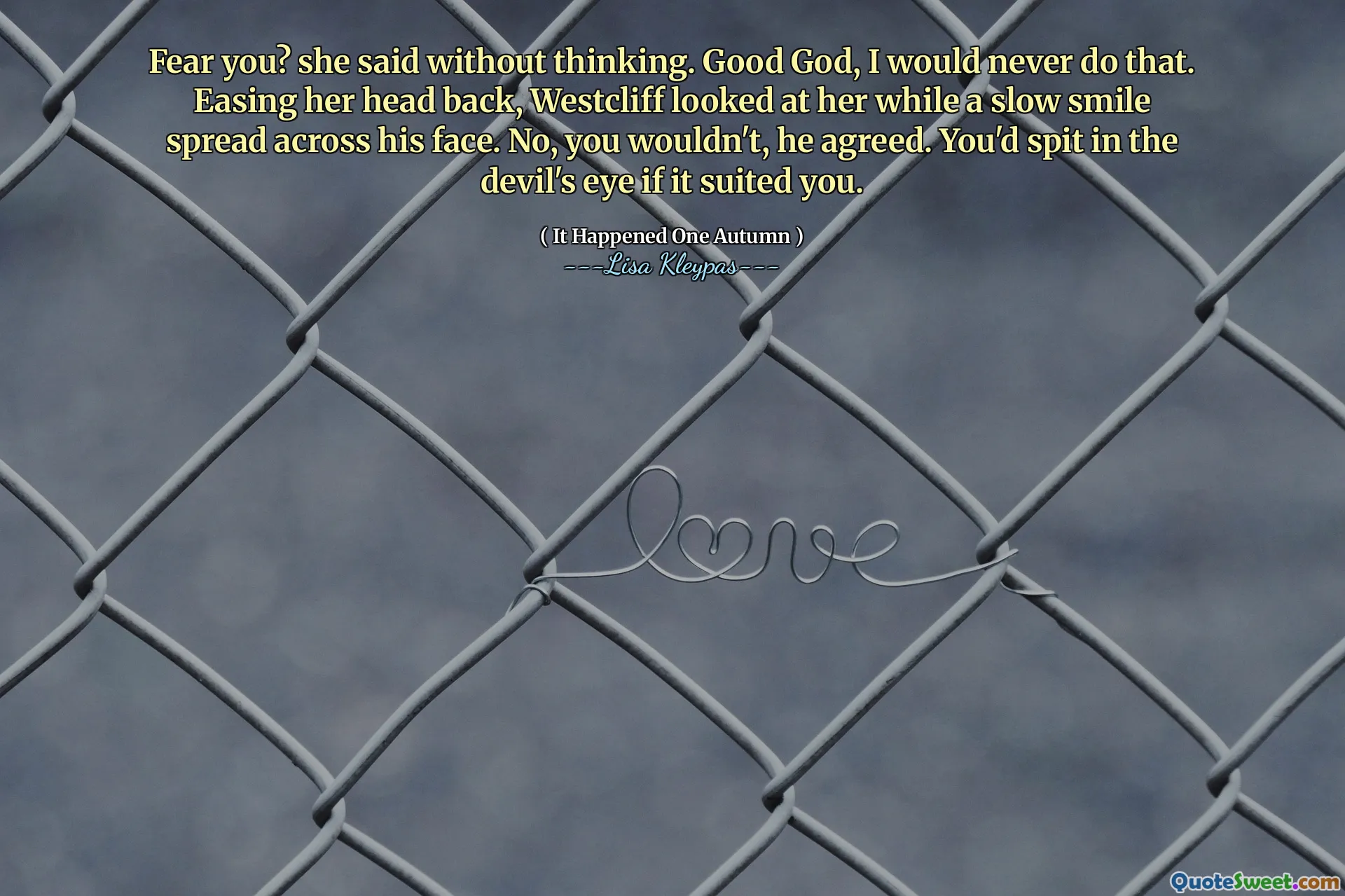
Fear you? she said without thinking. Good God, I would never do that. Easing her head back, Westcliff looked at her while a slow smile spread across his face. No, you wouldn't, he agreed. You'd spit in the devil's eye if it suited you.
This passage vividly captures a moment of daring defiance and spirited independence. The woman's spontaneous reaction to fear—claiming she wouldn't do such a thing—reveals a strong-willed personality, unafraid to confront danger or challenge authority. Her incredulous tone indicates self-assurance and perhaps a touch of bravado, which is both admirable and relatable. Westcliff's calm, knowing smile suggests he recognizes her fiery spirit and respects it, even if he's aware of the risks involved. The imagery of 'spitting in the devil's eye' is particularly striking; it symbolizes boldness and rebellion—standing firm against evil or adversity despite the potential consequences. Such a metaphor emphasizes a woman’s resilience and willingness to confront the darker aspects of life with unyielding courage. The dynamic between these characters highlights themes of bravery, integrity, and the importance of inner strength in the face of danger. It reminds me that true courage often lies in standing up for oneself and maintaining conviction, regardless of fear. Sometimes, our initial reactions are instinctive, revealing our core beliefs and most authentic selves. Moments like these propel characters forward, especially in stories set in tumultuous times where moral clarity and resilience become key. Their exchange encapsulates a timeless celebration of daring independence—invoking the idea that even in the face of evil or uncertainty, a fierce spirit can refuse to be subdued, inspiring readers to embody similar resilience in their own lives.






